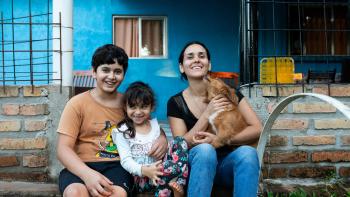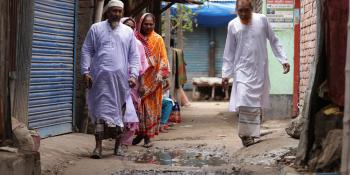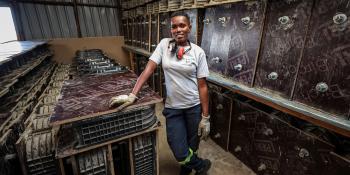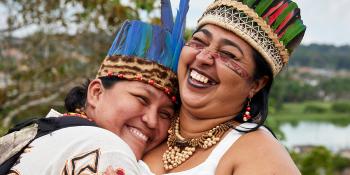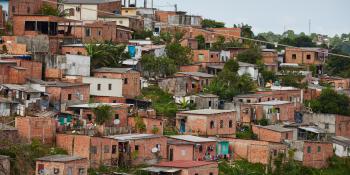Home Equals is a five-year global advocacy campaign dedicated to achieving policy change, at all levels, to ensure that people living in informal settlements have equitable access to adequate housing. Together, with partners, governments and communities, we can create lasting change so that people living in informal settlements have safe and secure homes.
Currently, the more than 1 billion people around the world living in informal settlements, such as slums or favelas, are not treated as equals — their homes often lack basic services, land tenure security and climate resilience.
- A home without access to clean water means families are at risk of life-threatening diseases.
- A home without land rights means families live in fear of eviction with their futures on hold.
- A poorly built home in a disaster-prone area means families are more vulnerable to climate change.
- A home where civic participation is limited means families struggle to have their voices heard.
This isn’t fair, this isn’t right. It will take the power of communities coupled with policy change to ensure access to adequate housing for all.
Celebrating Impact: Home Equals Year 2 Progress Report
The Year 2 report showcases our collective achievements, features impactful stories from the ground and elevates the profound effects that improving housing in slums will have on women’s health.
With fewer barriers in their way, people in informal settlements can improve their homes, creating benefits for themselves, their families and their communities. Because:

Informal settlements hold infinite promise. In these bustling communities, innovation and entrepreneurship thrive. Even in the face of barriers, resilient residents of informal settlements are doing their part to create positive change.
But grassroots initiatives, while powerful, can only go so far. Governments must listen to residents of informal settlements, turn their ideas into action and recognize that when people living in informal settlements have adequate housing, everyone benefits.

As a global housing leader, Habitat for Humanity has a unique opportunity in ensuring that access to adequate housing is prioritized around the world. Together, we can advance policies that unlock the potential of people who deserve an equal shot at a decent home.
These improvements raise a country’s overall Human Development Index and, beyond that, lead to greater climate justice, gender equality and political inclusion.
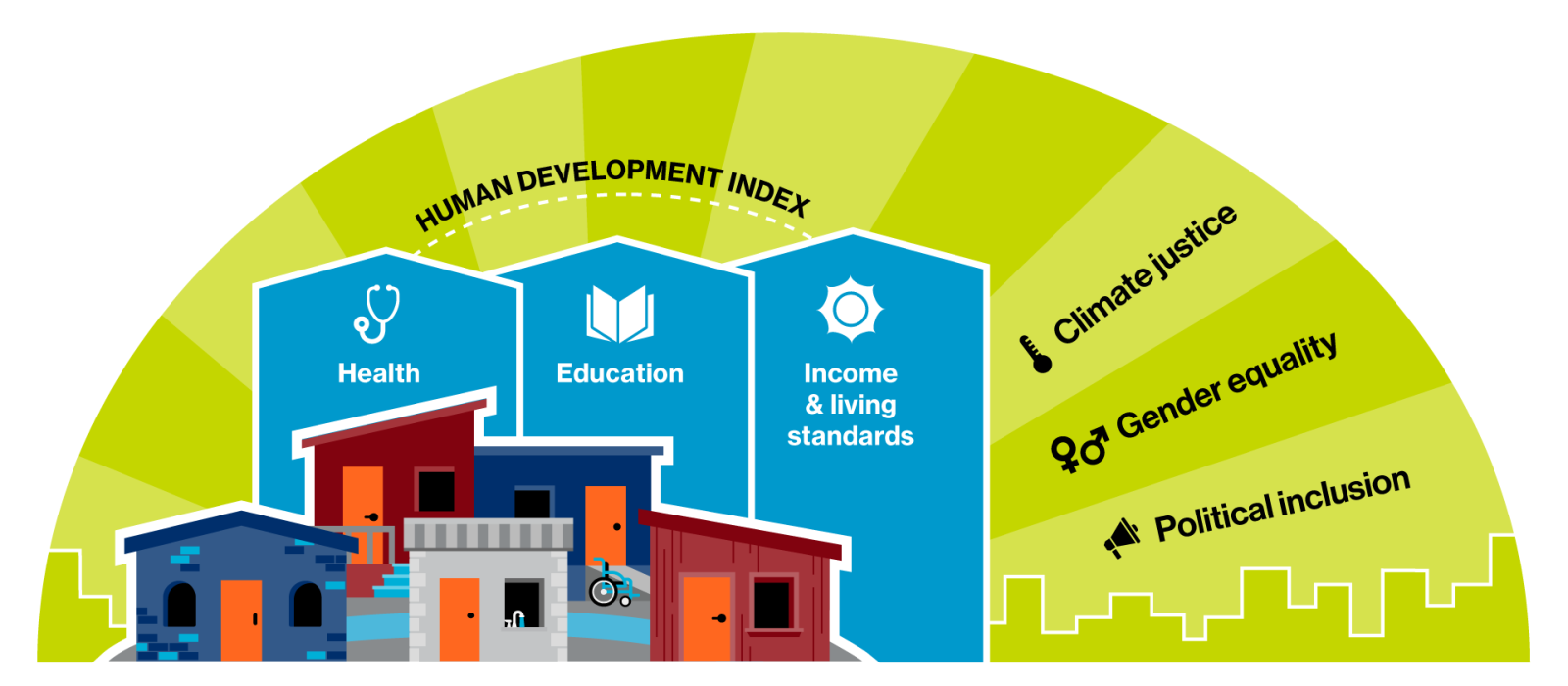
Adequate housing means:
Habitability
Provides for physical safety, health and adequate space for occupants.
Affordability
Leaves enough money for the occupants to meet other household basic needs.
Accessibility
Meets the specific needs of disadvantaged or marginalized groups.
Cultural adequacy
Respects the expression of cultural identity.
Basic services
Provides access to facilities and infrastructure like safe water, sanitation and electricity.
Secure tenure
Offers occupants protection against forced eviction, harassment and other threats.
Safe location
Ensures homes are in safe, unpolluted sites with proximity to employment, schools, childcare and healthcare.
The time to act is now. Without coordinated efforts, the challenges facing people in informal settlements will continue to grow.
Our unique approach
Leveraging the full power of our network
- We know that the challenges relating to adequate housing can only be overcome through collective cooperation. As the leading global housing organization, we have deep experience to form effective alliances and to mobilize others to address complex housing issues at scale.
Focusing globally, working locally
- Habitat’s worldwide network enables us to work at all levels – including directly with informal settlement families around the world and with governments to ensure adequate housing for all.
Influencing the G7
- The Group of Seven, or G7 – an organization of seven of the world’s largest industrialized economies – delivers the highest proportion of the world’s development assistance. As a governing body with worldwide influence, the G7 can help remove structural barriers to adequate housing that prevent informal settlements from thriving.
- Habitat’s G7 advocacy will complement local, national and regional efforts.
See the proportion of urban population living in
informal settlements by country:
Database is compiled through the U.N. System in preparation for the Secretary-General’s annual report on Progress towards the Sustainable Development Goals.
